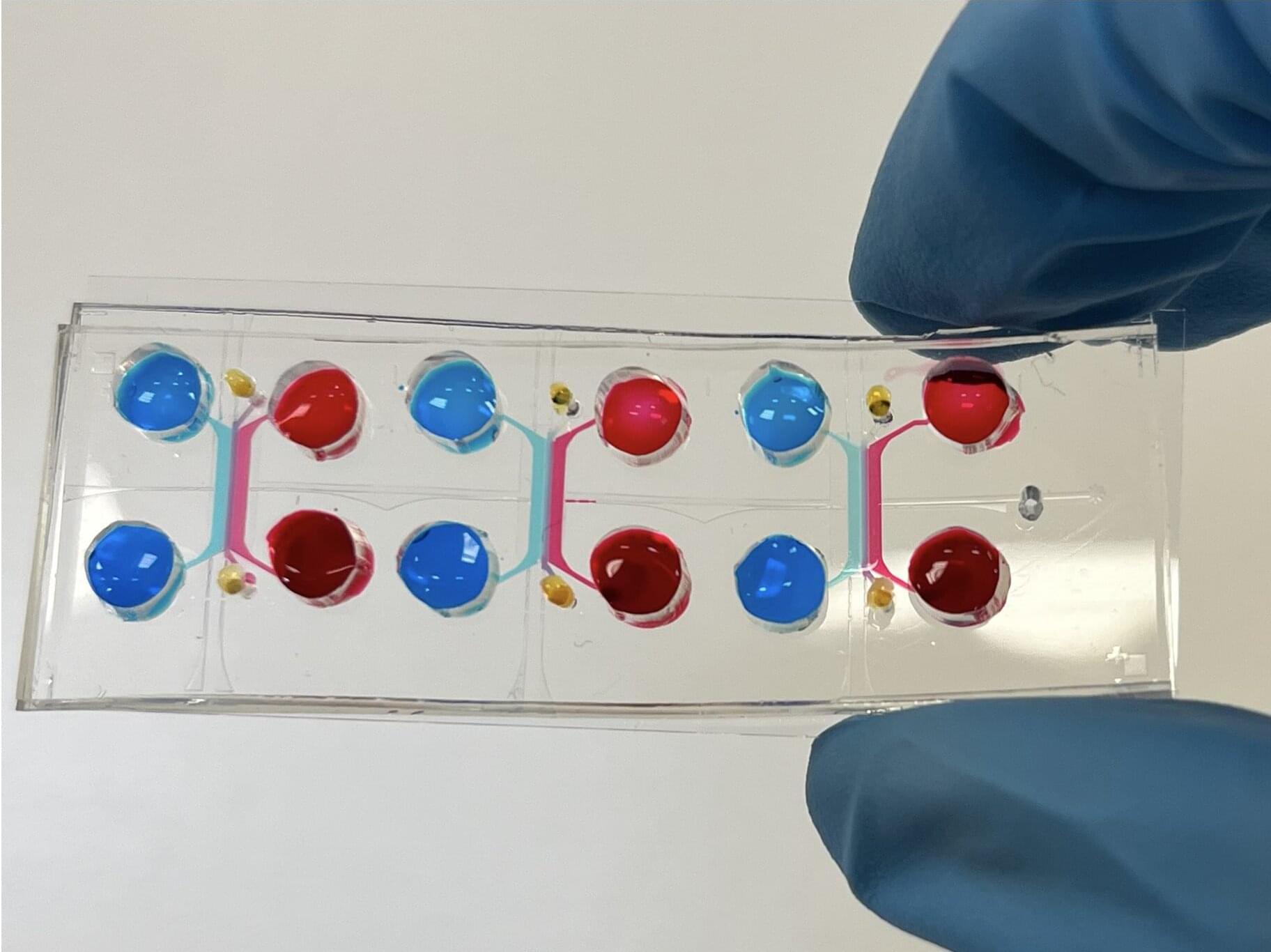A team of researchers has developed a “gut-on-chip” (a miniature model of the human intestine on a chip-sized device) capable of reproducing the main features of intestinal inflammation and of predicting the response of melanoma patients to immunotherapy treatment. The results have just been published in Nature Biomedical Engineering.
The interaction between microbiota and immunotherapy has long been known. It is the result of both systemic effects, i.e., the immune response elicited in the entire body by immunotherapy, and local processes, especially in the gut, where most of the bacteria that populate our body live. However, the latter can only be studied in animal models, with all their limitations.
Indeed, there is no clinical reason to subject a patient receiving immunotherapy for melanoma to colonoscopy and colon biopsy. Yet intestinal inflammation is one of the main side effects of this treatment, often forcing the therapy to be discontinued.
